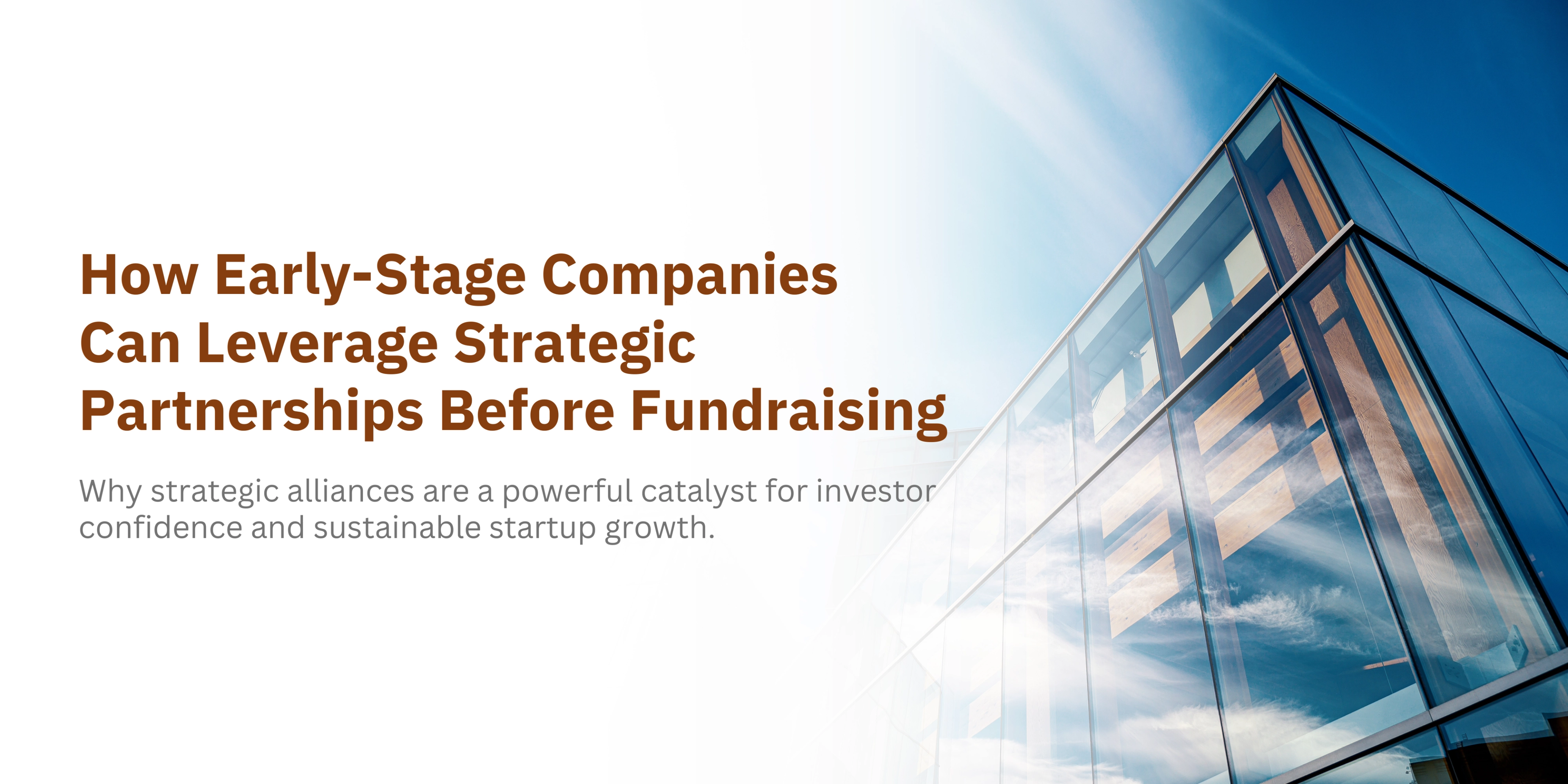In the competitive terrain of early-stage entrepreneurship, funding is often perceived as the first major milestone. Yet, startups that focus solely on capital before capability often face premature scaling, shallow market understanding, or investor hesitation. The strategic alternative?
Build partnership equity before financial equity.
Strategic partnerships offer early-stage ventures credibility, access, and momentum that no standalone capital raise can match. As Breezy.io (2023) notes, such alliances enhance market validation and mitigate perceived investor risk, making startups more fundable and future-ready.
The Role of Strategic Partnerships in Early-Stage Growth
Strategic partnerships are not just transactional collaborations; they are growth multipliers. For startups still refining their product-market fit, aligning with established players can accelerate both learning and legitimacy.
According to Rauva (2025), partnerships offer three core benefits before entering the fundraising cycle:
- Market Validation: Partnering with established firms provides proof of concept and enhances investor perception of product viability.
- Access to Networks: Collaboration opens doors to customer bases, distribution channels, and future investors.
- Operational Support: Partnerships often provide infrastructure, mentorship, or data resources that strengthen business fundamentals.
Moreover, Alejandro Cremades (2021) emphasizes that such alliances can create non-dilutive value, giving founders the leverage to negotiate better deal terms when they do raise funds.
Corporate-Startup Collaborations: The Modern Innovation Model
The traditional startup journey is being redefined through corporate partnerships. As outlined by the Boston Consulting Group (2025), corporate-startup collaborations are evolving from one-off pilot projects into structured innovation ecosystems.
Key trends driving this transformation include:
- Shared R&D and co-innovation labs for faster product iteration.
- Strategic investments or acqui-hires that align long-term interests.
- Corporate accelerators and venture arms offering funding and mentorship.
Bundl Group (2019) identifies trust and alignment as the critical success factors. Successful collaborations require clear communication on objectives, IP ownership, and outcome expectations. Without these, even promising partnerships risk dissolving after the initial enthusiasm fades.
Partnerships as a Precursor to Fundraising
Partnerships don’t just prepare startups for investors, they attract them. Razorpay (2024) highlights that strategic alliances demonstrate a startup’s ability to execute and collaborate effectively, signaling reliability to potential backers.
Key reasons why partnerships strengthen investor readiness include:
- Credibility: Validation through association with reputable brands enhances investor confidence.
- Proof of Execution: Demonstrating traction through collaborative outcomes builds operational trust.
- Strategic Synergy: Partnerships can clarify a startup’s role within broader ecosystems, an increasingly important factor for venture capital alignment.
In fact, StartupBlink (2025) documents numerous corporate-backed startups, from fintech to mobility, that transitioned to funding rounds with pre-built ecosystems of trust and validation.
Enablers of Strong Partnerships: Accelerators and Incubators
Accelerators and incubators play a critical intermediary role in building investor-ready partnerships. As PitchDrive (2023) notes, they act as catalysts of connection between startups, corporates, and capital. Beyond workspace or mentorship, these platforms enable strategic exposure to potential partners aligned with long-term objectives.
Such environments also strengthen marketing analytics infrastructure, which according to the Multiresearch Journal (2023), enhances investor readiness by improving visibility into performance metrics and customer data. These insights are invaluable for building trust with both partners and investors.
Designing a Partnership-First Strategy
To derive maximum value from pre-fundraising collaborations, startups should:
- Identify complementarity: Seek partners whose strengths offset your gaps, whether in distribution, technology, or credibility.
- Prioritize shared outcomes: Define success metrics that create mutual benefit.
- Institutionalize learning: Use each collaboration to strengthen internal systems, not just deliverables.
- Leverage data: Track performance indicators that quantify the value created by partnerships.
When designed thoughtfully, partnerships transform from short-term alliances into long-term strategic differentiators.
Building Credibility Before Capital
In the startup lifecycle, credibility precedes capital. Strategic partnerships offer that bridge, connecting early vision with sustainable execution. They validate product-market fit, refine operational maturity, and signal readiness to investors seeking stability amid innovation.
At Yajur Knowledge Solutions, we believe that early-stage success lies in combining strategic foresight with actionable collaboration. By aligning data-driven insights with meaningful partnerships, startups can not only attract funding but also build resilient ecosystems around their value propositions.
References
- Breezy.io. (2023). Strategic Partnerships for Startups: Why They Matter.
- Rauva. (2025). Fundraising Strategies for Early-Stage Startups.
- Cremades, A. (2021). The Power of Strategic Partnerships: Leveraging Collaborations for Startup Financing.
- Boston Consulting Group. (2025). Making Corporate-Startup Relationships Work.
- Bundl Group. (2019). 11 Key Steps for Successful Corporate-Startup Collaboration.
- Razorpay. (2024). Power of Partnerships: A Guide to Strategic Alliances.
- StartupBlink. (2025). Examples of Corporate-Backed Startups.
- PitchDrive. (2023). How Incubators and Accelerators Fuel Startup Growth.
- Multiresearch Journal. (2023). Systematic Review of Marketing Analytics Infrastructure for Enabling Investor Readiness in Early-Stage Ventures.






